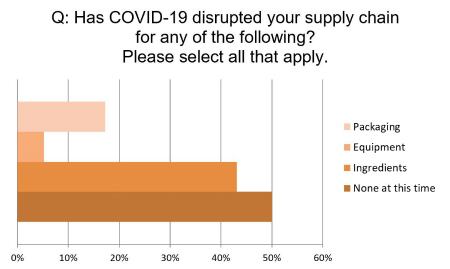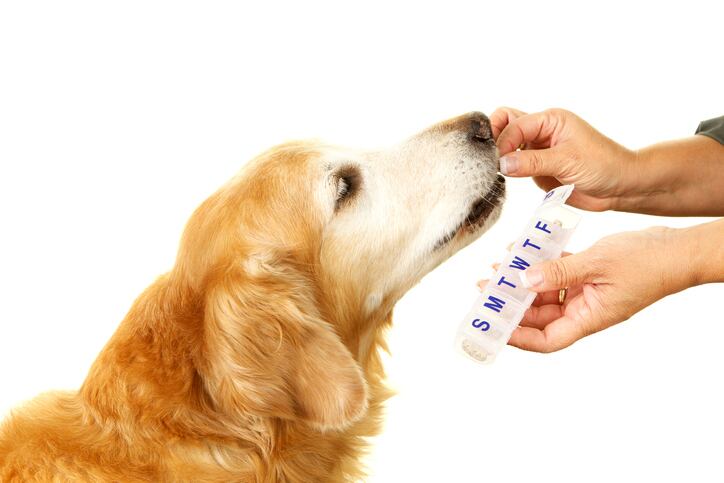According to the 2019 Council for Responsible Nutrition (CRN) Consumer Surveyon Dietary Supplements, 77% of Americans reported they consume dietary supplements and in recent months, it may be even higher. A Civic Science survey of over 33,000 American adults found that the number of daily vitamin takers jumped 14% between February and March this year.
With the focus on health and immunity more than ever, some may wonder if this trend translates to other family members —specifically, the furry kind.
Pet trends on par with human trends
“Typically trends in the pet supplement area follow very closely with trends on the human side,” said Bill Bookout, a dominant voice in the animal supplement industry and president of the National Animal Supplement Council (NASC), the leading trade association representing companies that manufacture and sell products similar to dietary supplements, marketed for dogs, cats and horses.
Bookout told Nutraingredients-USA that the demand for pet supplements is up significantly. “So pretty much across the board from all NASC members that I've spoken with, the demand for pet supplements is up. Is that demand panic buying or is it sustainable because people are more focused and conscious of immunity for pets as they are for themselves? I hope so, but I don't think we'll know that for another couple quarters and we’ll look back at the trends and see.”
According to Bookout, the million dollar question is if this is real demand (the market is expanding) or if people are buying pet supplements more frequently due to the increased spotlight on immune health brought on by the coronavirus.
“It certainly has the potential, but I don't think I could definitively say people are buying more immune support supplements for their pets.”
While Bookout said he hasn't seen pet immunity products trending, based on historical evidence, data and trends established in the industry, it’s certainly plausible.
“That I don't think we will know for some time. I can tell you from a sales standpoint people are buying pet supplements like they're buying toilet paper. And they’re also buying pet food. I think people were worried there might be an interruption in the supply chain.”
Panic at the pet shop
Pet Food Processing recently surveyed pet food manufacturers to measure how their businesses have been affected by the coronavirus pandemic.
According to their results, manufacturers reported in early April that a majority (63%) said they have seen an increase in demand as a result of coronavirus panic purchasing,

while 19% said they have seen a decrease in demand, 10% said they have not yet been impacted but expect to be, and 8% said there has been no impact.
Between packaging, equipment and ingredients, manufacturers reported that the ingredient supply chain has been most affected. On the other hand, half of the manufacturers said they have not experienced supply chain disruptions for ingredients, equipment or packaging materials so far.
The US Food and Drug Administration (FDA) hosted a stakeholder call with the animal food industry on Mar. 31 to discuss animal food safety and food supply questions related to the pandemic.
Tim Schell, PhD, director of the FDA’s Center for Veterinary Medicine (CVM) office of surveillance and compliance, explained that animal food production and manufacturing are widely dispersed throughout the US and there are currently no wide-spread disruptions in the supply chain.
“I know that there have been reports of empty pet food aisles or delays ordering from home-based delivery services. Based on our ongoing communication with both the human food and animal food industries, we understand this is largely an issue of unprecedented demand, not a lack of capacity to produce and process," said Schnell.
Workforce challenges
Bookout recently attended a seminar where he spoke with several industry (pet and human) stakeholders. He said there really isn’t a significant disruption in the supply chain itself.
“They have had disruptions in the workforce, even though pet food and pet supplements are considered essential businesses. So there’s no interruption in the ability for people to come to work or come to produce the products, but there have been people who have called in, sick for one reason or another or not wanting to come in because of health concerns.”
Following a recent request from the US Department of Agriculture, the Council for Responsible Nutrition (CRN) surveyed their members on supply chain disruptions. CRN identified a number of supply chain challenges for human supplements such as shipment delays, shortages and increased pricing.
“The majority of ingredients in pet supplements are exactly the same as ingredients in human dietary supplements, so 70% of the ingredients come from foreign sources, China being a significant source for pet supplements just like they are for human supplements. The only difference in pet supplements are in the components that add palatability. Palatability is important for an animal, where we can take a capsule or larger tablet with water.”
Quality, dependency
“Is the industry vulnerable, both the human dietary supplement industry as well as the pet supplement industry, on foreign-sourced ingredients, particularly China? The answer is absolutely yes.”
Bookout told NutraIngredients-USA that in regard to foreign-sourced ingredients, it comes down to quality and dependency.
“From a quality standpoint, there is no substitute for qualifying your vendors or suppliers, US-based or offshore. It doesn't make any difference, quality ingredients or bad quality ingredients can come from any supplier, anywhere.”
When it comes to dependency, Bookout said he thinks it would be wise for any industry to look at how dependent they are on foriegn-sourced ingredients and what would happen in some unforeseen catastrophic event that may cause a significant disruption in the supply chain. “What would that do to the industry?” he asked.
Coronavirus: a cautionary tale
Bookout told us that he believes we all should be concerned about the high degree of ingredients coming from foreign sources. “We can view the COVID thing as an early warning sign. And the same considerations and questions that are being asked for things like drug dependency and antibiotics, should also be asked of other segments, channels, and sectors, no matter what they are.”
“So I think one thing the industry should be very focused on, both animal and human industry, is interruptions in the supply chain. Whether real or perceived, they always cause the potential for opportunistic suppliers to enter the marketplace and try to capitalize on fear or shortages or whatever with lower quality ingredients.”
Quarantine and chill? Not for the industry
During the Mar. 31 stakeholder call with the animal food industry, Michael Rogers, assistant commissioner for human and animal food operations for the FDA office of regulatory affairs, addressed the agency’s current approach to inspections. The FDA has postponed all domestic and foreign routine surveillance inspections of firms that manufacture human and animal foods and are only focusing on inspections that are considered as mission critical when there is a potential threat to public health.
Rogers said the FDA plans to revisit this approach on a periodic basis, but the agency does not plan to proceed with routine surveillance inspections until this crisis has passed.
Bookout said with inspections paralyzed, now is not the time to relax, rather, the industry should step up and focus on quality.
“Companies should not have a false sense of security by that. Now is not the time to relax standards in terms of GMPs or qualifying raw material suppliers, verifying quality potency strength/purity composition, and contaminants of raw materials. So I think now we should be even more vigilant about quality than we have in the past. I think the industry would be served well, human and animal, to emphasize those points."

